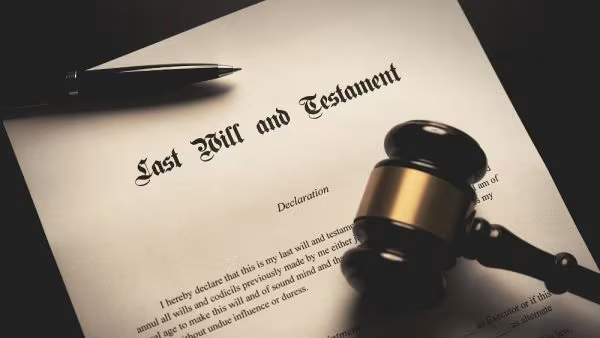Probate
Probate is an essential legal process that occurs after a person’s death. It involves proving the validity of a deceased person’s will and administering their estate. At Wright Street Lawyers, we have extensive experience in handling probate matters in Adelaide and can guide you through the process with professionalism and care.
What is Probate?
Probate is the legal process of administering the estate of a deceased person. It involves proving the validity of the deceased person’s will and granting authority to the executor named in the will to distribute the assets and settle any outstanding debts.
In South Australia, the Supreme Court oversees the probate process. The court ensures that the deceased person’s wishes, as stated in their will, are carried out correctly and that all legal requirements are met.
Probate is necessary to transfer ownership of assets, such as property, bank accounts, and investments, from the deceased person to their beneficiaries. It provides a legal framework for the distribution of assets and protects the rights of the deceased person’s loved ones.
Key Elements/Types of Probate
There are several key elements and types of probate that you should be aware of:
1. Valid Will
A valid will is a crucial element of the probate process. It must meet certain requirements, such as being in writing, signed by the deceased person, and witnessed by two independent witnesses. If the will is found to be invalid, the estate may be distributed according to intestacy laws.
2. Executor
The executor is the person named in the will to administer the estate. They have various responsibilities, including gathering and valuing assets, paying debts and taxes, and distributing assets to beneficiaries. The executor’s role is essential in ensuring the smooth progress of the probate process.
3. Letters of Administration
If the deceased person did not leave a valid will, the court may grant Letters of Administration to an eligible person, typically a close relative. This person will then act as the administrator of the estate and distribute the assets according to intestacy laws.
4. Grant of Probate
A Grant of Probate is a legal document issued by the court, confirming the validity of the will and granting authority to the executor to administer the estate. This document is crucial for the executor to carry out their duties effectively.
5. Grant of Letters of Administration
If there is no valid will, the court may grant Letters of Administration to an eligible person. This grant authorises the administrator to administer the estate and distribute the assets according to intestacy laws.
Understanding these key elements and types of probate is essential for navigating the probate process effectively.
The Legal Process in South Australia
The probate process in South Australia typically involves the following steps:
1. Gather the Relevant Documents
The first step is to collect all the necessary documents, including the original will, death certificate, and any other relevant paperwork. These documents will be crucial in proving the validity of the will and administering the estate.
2. Lodge the Application
The executor or administrator must lodge an application with the Supreme Court of South Australia. This application will include all the required forms and supporting documents. It’s important to ensure that the application is completed accurately and in compliance with the court’s requirements.
3. Publish a Notice of Intention to Apply
After lodging the application, the executor or administrator must publish a notice of intention to apply for probate or letters of administration. This notice informs interested parties, such as creditors and beneficiaries, about the pending probate process.
4. Waiting Period
After publishing the notice, a waiting period of at least 14 days is required before the court can grant probate or letters of administration. This waiting period allows interested parties to come forward and raise any concerns or objections.
5. Grant of Probate or Letters of Administration
If no objections are raised during the waiting period, the court will grant probate or letters of administration. The executor or administrator will receive the necessary legal documents to carry out their duties.
6. Administering the Estate
Once probate or letters of administration are granted, the executor or administrator can begin administering the estate. This involves gathering and valuing assets, paying debts and taxes, and distributing assets to beneficiaries according to the terms of the will or intestacy laws.
It’s crucial to seek legal advice and assistance throughout the probate process to ensure compliance with all legal requirements and to handle any complexities that may arise.
Your Rights and Obligations
As a beneficiary or potential beneficiary, you have rights and obligations during the probate process:
1. Right to Be Informed
You have the right to be informed about the progress of the probate process and any decisions made regarding the distribution of assets. The executor or administrator should provide you with regular updates and keep you informed of any significant developments.
2. Right to Contest
If you believe that the will is invalid or that you have been unfairly excluded from the distribution of assets, you have the right to contest the will. Contesting a will involves initiating legal proceedings to challenge its validity or seek a greater share of the estate.
3. Obligation to Cooperate
As a beneficiary, you have an obligation to cooperate with the executor or administrator and provide any necessary information or documentation when requested. Cooperating with the probate process helps ensure its smooth progression.
4. Limited Liability for Debts
Beneficiaries are generally not personally liable for the deceased person’s debts. However, if the estate does not have sufficient assets to cover all debts, the distribution of assets may be affected.
Understanding your rights and obligations during the probate process is crucial for protecting your interests and ensuring a fair distribution of assets.
Common Issues and Solutions
Probate can be a complex process, and various issues may arise. Here are some common issues and their solutions:
1. Disputes Among Beneficiaries
Disputes among beneficiaries can arise when there are disagreements regarding the distribution of assets or the interpretation of the will. Mediation or negotiation can often help resolve these disputes. If a resolution cannot be reached, legal proceedings may be necessary.
2. Challenges to the Will
Challenges to the will can occur when someone believes that the will is invalid due to undue influence, lack of testamentary capacity, or fraud. In such cases, it’s crucial to seek legal advice to determine the best course of action.
3. Taxation Issues
Probate can have tax implications, including capital gains tax, income tax, and stamp duty. Seeking advice from a tax professional can help ensure compliance with all tax obligations and minimise tax liabilities.
4. Estate Administration Delays
Delays in estate administration can occur due to various factors, such as disputes, complex assets, or missing documentation. Engaging an experienced probate lawyer can help expedite the process and overcome any obstacles that may arise.
At Wright Street Lawyers, we have the knowledge and client-focusedise to handle these common issues and provide effective solutions. Our team is dedicated to guiding you through the probate process efficiently and with the utmost professionalism.
Why Choose Wright Street Lawyers
Choosing the right law firm for your probate needs is crucial. Here are some reasons why you should choose Wright Street Lawyers:
1. Experience
We have extensive experience in handling probate matters in Adelaide. Our team has a deep understanding of South Australian probate law and can navigate the process efficiently.
2. Personalised Service
We provide personalised service to each client, taking the time to understand their unique needs and goals. We are committed to delivering tailored solutions that meet our clients’ expectations.
3. client-focusedise
Our lawyers have specialised client-focusedise in probate law. We stay up to date with the latest developments in the field and apply our knowledge to provide effective legal advice and representation.
4. Client Satisfaction
We prioritise client satisfaction and strive to exceed our clients’ expectations. Our team is dedicated to providing exceptional service and achieving positive outcomes for our clients.
When you choose Wright Street Lawyers, you can trust that you are receiving client-focused legal guidance and support throughout the probate process.
FAQs
Get client-focused Legal Help Today
Contact Wright Street Lawyers for a confidential consultation






